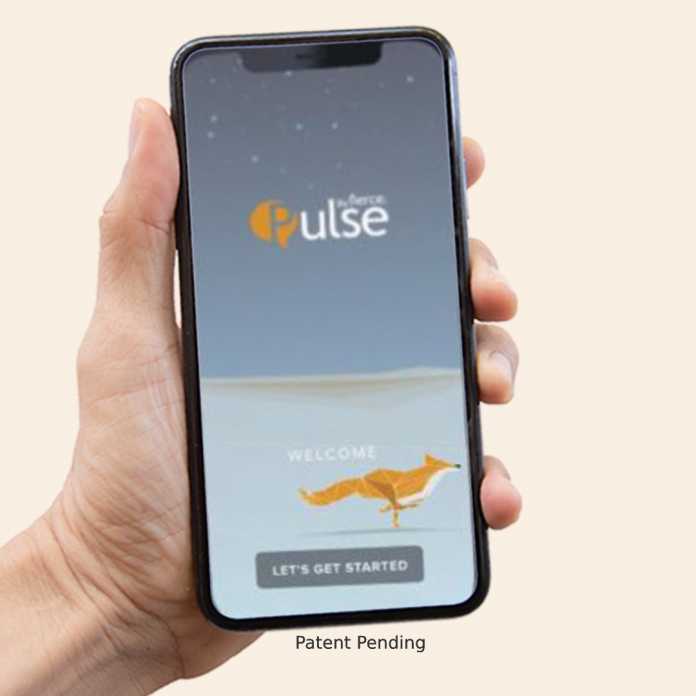Gallup findings from its latest global update determined that stress, sadness and worry have increased globally, pushing Gallup’s Negative Experience Index to a new high, and this includes career lives.
On the heels of its artificial intelligence (AI), Metaverse and interactive 3D virtual employee training and simulation deployments, Fierce Inc. is changing the way people communicate to address workplace stress. The company’s “Pulse” app is poised to refine workplace culture, while boosting bottom lines. With the ability to demonstrate double-digit reductions in stress and anxiety, as well as improved resilience levels, Pulse addresses the pressure-laden business climate causes on industry’s staff psyche.
“Beyond the increasingly tumultuous economic, political, supply chain — and other macros — issues companies and its employees are grappling with, handheld technologies and better-equipped home, remote and on-site offices have made people more readily accessible — all resulting in greater demands for work participation and productivity,” said Dr. Gabe De La Rosa, chief behavioral science officer for Fierce Inc. “Uptime or ‘on time’ expectations are contributing to higher stress levels as downtime — that is the time to relax, enjoy family and friends and explore hobbies that might help to moderate those stress levels — continues to shrink. The toll for that is being paid on multiple fronts — emotional, psychological, physical, operational and fiscal.”
It has been proven that workplace stress undermines productivity, efficiency and morale. In the post-pandemic era, employees and companies struggle to adapt to and address, employees’ changing needs. In this cycle, hundreds of billions of dollars of revenue are being lost — a situation that’s avoidable if addressed. One notable cost-of-illness study estimated “the cost of work-related stress ranged from U.S. $221 million to upward of U.S. $187 billion.” An inclusive analysis conducted by the American Institute of Stress found that after including factors such as absenteeism, turnover, diminished productivity, increased medical costs and increased legal costs, the total economic impact of stress to U.S. employers was estimated at $300 billion.
For 20 years, Fierce has challenged companies and those who lead them to have the kind of dialogue that drives cultures of transparency. Today, Fierce’s CEO Ed Beltran and De La Rosa have parlayed the idea that “the conversation is the culture” to develop the Pulse app — a technological solution coined “The Fitbit of Corporate America.” It’s in that spirit Pulse strives to build a mentally fit workforce and shore up financial fitness in kind.
Early data from the Pulse app, which is available for early registration ahead of its official September launch, has demonstrated results, including:
- 14 percent decrease in anxiety
- 10 percent decrease in stress
- 8 percent decrease in burnout
- 11 percent increase in resilience
Pulse uses stress and heart rate variability (HRV) to measure stress. It categorizes stress and ties it to specific times and events, which allows the user to decipher and identify its causes. Beltran underscores the value of this approach, noting, “The app pinpoints stressors and can help both the individual and the company identify if it was triggered due to something in the employee’s personal life, a temporary intense workplace assignment or more macro company issues like identifying signs of toxic workplace culture.
“The critical piece is going beyond just managing stress through meditation, exercise, diet and being aware of the root cause of your stress and tackling it head-on,” Beltran continued. “This is what Fierce has been teaching for over 20 years — how to engage your environment through conversations with the goal of enriching relationships and driving to your desired results. This is what Pulse does at your fingertips.”
Pulse App features include:
- Specific mediation to your stressors
- Biometric analysis to increase self-awareness
- Interactive AI bot to guide you through your stressor
- Optional coach support
- Integration with today’s top wearable devices
- Integration with calendar and GPS to pinpoint stress origin
Pulse App benefits include:
- Enables users to pinpoint and eliminate stress through patented technology, breakthrough research and interactive content and coaching
- Links self-awareness, identifying people’s toughest challenges and moving to action
- Quicker determination of issues and moves toward a resolution
- Eliminates open-ended coaching that is hard to tie to results
- Determines organizational issues/themes for broader virtual or live L&D/wellness engagements
- Connects users directly to wellness and employee assistance programs
- Connects users to relevant and applicable OnDemand L&D content
- Develops and increases resilience that drives economic impacts on the organization, supporting a thriving culture
- Supports EAS Compliance
- Delivers results in as little as two weeks and one coaching session
“A leader’s best friend is visibility, and Pulse is perhaps the biggest innovation in employee engagement in many years — one that helps leaders see and address what otherwise would be difficult to detect,” Beltran said.
De La Rosa reinforced the importance of stress mitigation and the significance of the Pulse app’s development, saying, “Companies should have a proactive communication strategy to help address and alleviate staff stress and anxiety and the tools to help facilitate those goals. Solutions like Pulse can help create cultures eliminating the gap between what people feel and what they say in workplace conversations, which is at the center of what drives a lack of mental and emotional health. Leaders that help their groups eliminate this gap produce higher-performing company cultures. When employees feel safe to truly show up as they are, they can invest more of themselves into their work roles. While stress has always been a cause of operational unease, the ensuing pandemic has raised the stakes far higher. It has exacerbated concerns far beyond the health realm—a reality that can have grave consequences for individual businesses and industries at large.”









